Health And Medicine
-
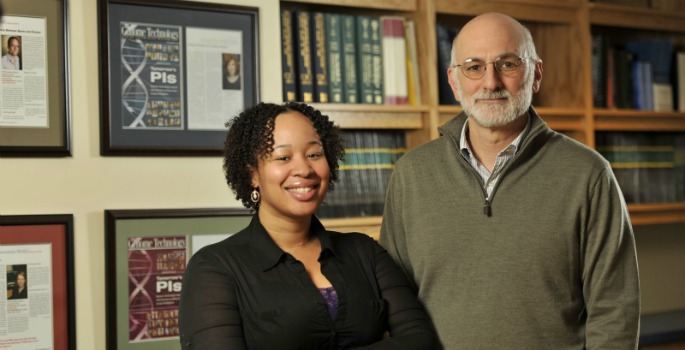
Colorectal cancer risk related to gene’s expression
Individuals who are outside the normal range of expression for the adenomatous polyposis coli (APC) gene have an increased risk of colorectal cancer, according to a study published in the January issue of Gastroenterology. Read MoreJan 27, 2012
-

Investigators seek clues to resistance to melanoma drug
Investigators at Vanderbilt-Ingram Cancer Center and several other centers may be one step closer to finding out why some melanoma patients relapse after treatment with a promising new drug. Read MoreJan 26, 2012
-
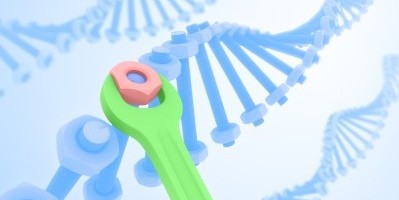
Protein repairs esophageal DNA damage
A protein involved in repairing DNA damage associated with gastric reflux may play a tumor suppressor role in the esophagus and could represent a target for therapies to combat esophageal cancer. Read MoreJan 25, 2012
-

Alcohol’s molecular mediators
Therapeutic agents focusing on the brain region involved in stress-induced relapse may be effective in preventing relapse in patients with alcohol use disorders. Read MoreJan 23, 2012
-

Studies shed new light on how nitric oxide is produced
The discovery of a previously unrecognized and pivotal role of enzyme ASL in nitric oxide production could potentially lead to new therapies for babies with pulmonary hypertension. Read MoreJan 20, 2012
-
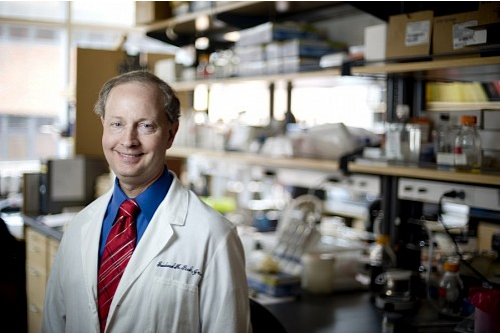
Digestive disease research bolstered by grant renewal
The Vanderbilt Digestive Disease Research Center celebrates its 10th anniversary this year with a second five-year renewal of its federal research grant. Read MoreJan 20, 2012
-

Pumping up the pancreas in pregnancy
A strain of mutant mice provide a novel model for studying glucose intolerance and gestational diabetes during pregnancy and suggest that certain molecules may be useful for therapeutic applications. Read MoreJan 20, 2012
-

Obesity genes linked to uterine cancer
In addition to body mass index, genetic markers of obesity may provide value in predicting endometrial cancer risk. Read MoreJan 20, 2012
-

Nicotine may aid memory for some older adults: study
Wearing a nicotine patch may help improve memory loss in older adults with mild cognitive impairment, according to a study published this week by Paul Newhouse, director of the Center for Cognitive Medicine. Read MoreJan 13, 2012
-

Study eases childhood cancer survivors’ birth defect worries
A large, retrospective study of the children of childhood cancer survivors who were treated with radiation therapy and/or some forms of chemotherapy found that the offspring do not have an increased risk for birth defects compared with children of cancer survivors who did not receive these treatments. Read MoreJan 13, 2012
-

Study applies random genotype sets to new disease
A new study in the American Journal of Human Genetics, led by Vanderbilt researchers Josh Denny, M.D., M.S., and Dana Crawford, Ph.D., takes random volumes of human genotypes and matches them with data siphoned from de-identified medical records and sheds new light on the genetic basis of the common… Read MoreJan 5, 2012
-

Melatonin found to ease sleep woes in children with autism
Vanderbilt researchers are studying how the supplement melatonin can ease the sleep difficulties that often afflict children with autism spectrum disorders. (iStock) A new Vanderbilt study shows that the over-the-counter supplement melatonin is promising in helping children with autism spectrum disorders (ASD), and their families, sleep better. Read MoreJan 5, 2012
-

VUMC researchers reveal darker side of common cold
Human rhinovirus (HRV), also known as the common cold, can be uncommonly serious for certain children, a study led by a Vanderbilt University Medical Center pediatrician shows. The study, published in the Dec. 28, 2011 online issue of the journal Pediatrics, shows that not only can HRV lead to hospitalization… Read MoreJan 5, 2012
-
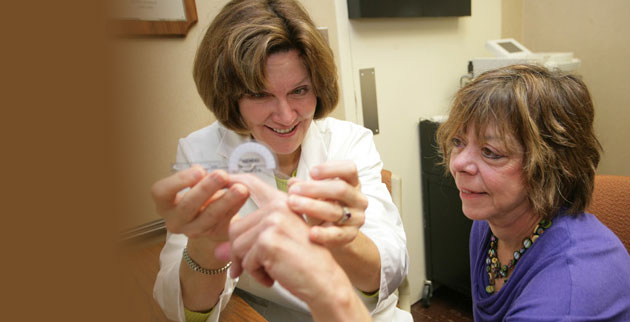
Diabetes trial sets bar high for retaining research subjects
Research participant Loren Kirkpatrick, right, has worked with Janie Lipps, MSN, and Vanderbilt’s Diabetes Control and Complications Trial since its inception in 1983. (Daniel Dubois / Vanderbilt) Loren Kirkpatrick has been enrolled in the Diabetes Control and Complications Trial (DCCT) at Vanderbilt’s Diabetes Center for nearly half… Read MoreJan 5, 2012
-
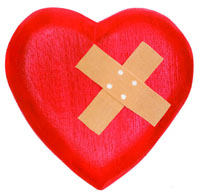
Fishing for heart attack repair tools
Managing myocardial infarction – and the resulting heart failure – remains a clinical challenge. To search for chemicals that can stimulate cardiac muscle cell production, Vanderbilt Institute of Chemical Biology investigators led by Tao Zhong, Ph.D., Terri Ni, Ph.D., and Eric Rellinger, M.D., turned to a novel drug discovery tool:… Read MoreJan 5, 2012
-
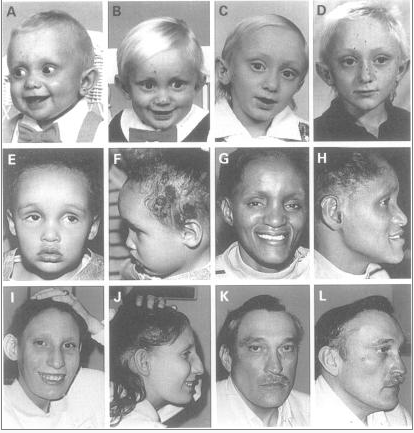
Clues to flattened faces
Images of individuals with Alagille syndrome (National Institutes of Health) Mutations in the Jagged1 gene cause Alagille syndrome, an inherited disorder that affects the liver, heart, kidneys and facial structure. Patients with Alagille syndrome often have a prominent forehead, a flattened midface and a prominent chin; some have a cleft… Read MoreJan 5, 2012
-
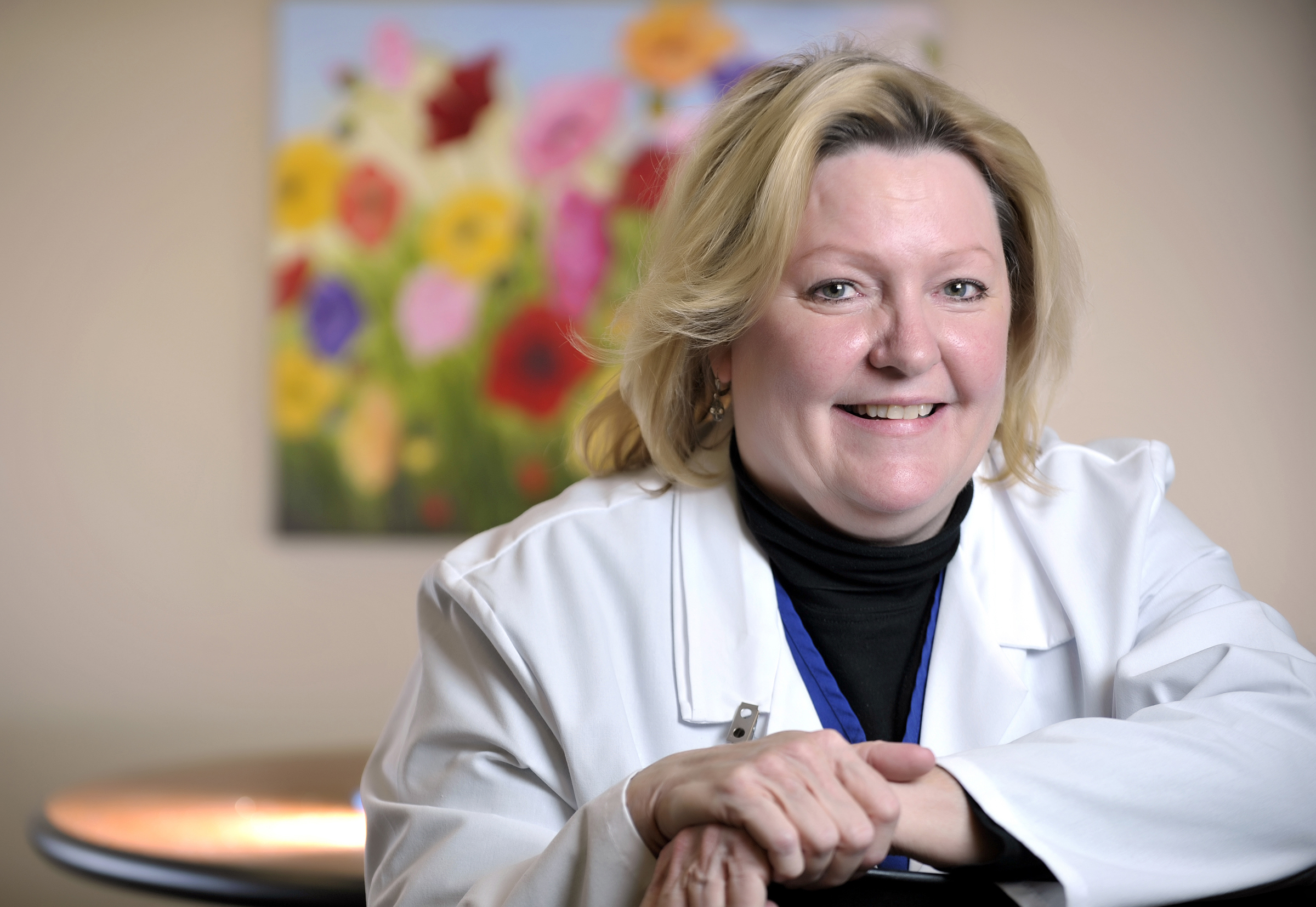
Study uses art to spur patients to walk after surgery
Mary Gwyn Bowen, R.N., is studying whether art on the walls motivates patients to ambulate more quickly following cardiac surgery. (Joe Howell / Vanderbilt) Following cardiac surgery, patients are encouraged to get out of bed and walk as soon as possible, a daunting task to many who… Read MoreJan 5, 2012
-
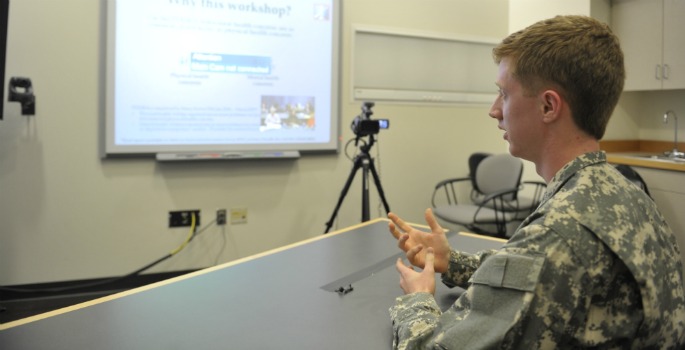
Training addresses returning service members’ mental health needs
A Vanderbilt-led workshop for military health care providers could lead to more post-deployment mental health referrals. Read MoreDec 21, 2011
-

Cholesterol-lowering drugs may reduce mortality for influenza patients
Statins, traditionally known as cholesterol-lowering drugs, may reduce mortality among patients hospitalized with influenza, according to a new study released online by The Journal of Infectious Diseases. Read MoreDec 19, 2011
-
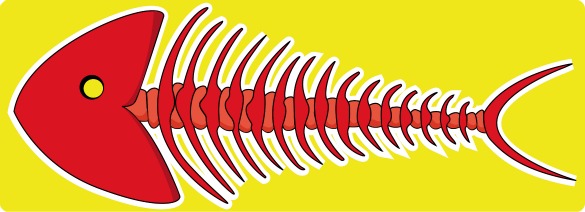
Clues to skeletal form in ‘feelgood’ fish
Ela Knapik, associate professor of medicine, and colleagues are using zebrafish to explore the molecular and cellular mechanisms that cause birth defects of the face and skeleton. Read MoreDec 16, 2011